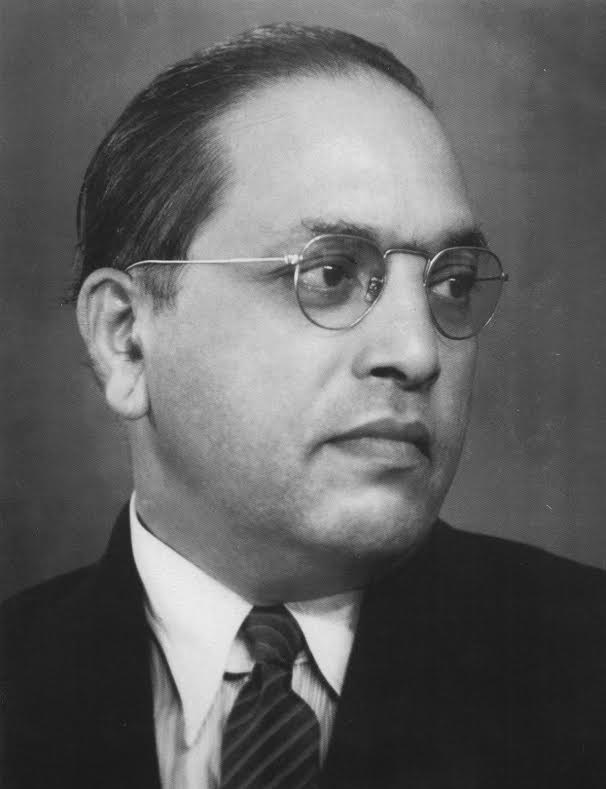 Dr. Bhimrao Ambedkar, a social reformer and jurist, is the father of the Indian Constitution. Ambedkar, however, is better known and revered for his lifelong work against caste-based discrimination, which played a central role in bringing to the forefront the plight of untouchables in both pre-independent and post-colonial India.
Dr. Bhimrao Ambedkar, a social reformer and jurist, is the father of the Indian Constitution. Ambedkar, however, is better known and revered for his lifelong work against caste-based discrimination, which played a central role in bringing to the forefront the plight of untouchables in both pre-independent and post-colonial India.
Today, 61 years after Ambedkar’s death, with myriad constitutional and statutory prohibitions against caste practices in existence, the plight of the underprivileged castes in India remains the same. Untouchably is widely practiced in India, and across South Asia. The underprivileged castes, collectively known today as Dalits, remain largely within the lowest economic strata of society.
Ending caste practices that dehumanise, discriminate, and isolate persons methodically requires an equally organised counter-mechanism, interfering with caste prejudices at all levels. This would involve sensitisation through education, the creation of equal opportunities, and, above all, a statutory mechanism that will investigate, prosecute, and punish those who practice caste-based discrimination. All these approaches should work in harmony to end the 3,000-year-old prejudice that has reduced millions of individuals into objects of disrespect and ridicule.
Unfortunately, in India, the criminal justice machinery that should be breathing life into all facets of combating caste-based discrimination has failed. The investigating agency, which is largely the local police, has no built-in and functioning accountability process; all manners of complaints are often not even registered. The agency also lacks morale and capacity; as a result crime investigation in India begins and ends with a confession statement. When such an agency is also required to investigate crimes stemming from caste prejudice, it is elementary that required investigation will not occur. Besides, police officers are not immune to caste prejudice themselves.
Similar conditions exist in the prosecutorial and adjudication agencies. Appointment of prosecutors in India is often not based on merit but on other considerations, such as political allegiance, bribe paid for the post, and caste and religious considerations.
The prosecutor plays a limited but important role in a criminal trial, i.e. to act impartially in presenting facts and witnesses before the court so the court may arrive at a decision. However, this role cannot be undertaken appropriately if the police investigation into the crime rests somewhere between shoddy and non-existent. The prosecutor cannot fulfil his or her appropriate function if the police cite wrong witnesses, fail to interview witnesses and the accused, and are incapable of gathering evidence for prosecution.
The Indian Judiciary, in consequence, has suffered from this defunct policing system. Add to this the other clogs in the process – corruption in the Judiciary, scandalous delays that often last longer than a decade, and caste-based prejudices practiced by trial judges – and what we have is a perfect recipe for a stalled post-colony.
This has rendered prosecution of criminal trials a meaningless exercise in the country, wherein prosecution of cases registered for the practice of caste prejudices do not warrant special attention, despite the special law, the Scheduled Castes and the Scheduled Tribes (Prevention of Atrocities) Act, 1989.
The civil society movement against caste prejudices in India and abroad, collectively referred to as the Dalit movement, is today a political movement powerful enough to make or break governments in India. This movement is alert in documenting and reporting cases of discrimination and has massive public appeal. It has spent the past 65 years in educating the public about the evils of caste and has spared no resources to help persons discriminated on the basis of caste. This commendable work of the movement is however eclipsed by the fact that despite having a special law criminalising caste-based discrimination, the prejudice and its open practice continues.
Caste-based discrimination is a crime in India, yet it goes unpunished. Though legislation has a role of social engineering, mere enactment alone will not end a social evil. To end evils like caste-based discrimination, what is required is an implementing mechanism. The Dalit movement has unfortunately missed this vital lesson and has largely failed to lobby for a proper implementation mechanism of law in India.
Today, the movement is finding it difficult to free itself from the rut of mere documenting and complaining. While the lobby work of the Dalit movement has been very successful in advancing other aspects of the fight against caste, it has failed to advance to the most critical dimension, addressing the criminal justice process.
Such progress in lobby work would have exposed the defects in the justice process that have thus far prevented the full benefits of the law criminalising caste prejudices from reaching the people. This exposure and lobby work for change still has the potential to create the India that Ambedkar dreamed and worked for.
# # #
Missing Link in the Democracy Project is a series of statements and articles published by the AHRC. The statements and articles speak to the central deficit in the Indian experiment with democracy, India’s dysfunctional justice process. The materials in this series could be read through the links provided below.
- The republic owes more to the people
- Is it for the police to form a policing policy?
- Celebrating “internet freedom” in a country known for custodial killings?
- Can caste-based discrimination end without criminal justice reforms?
- What else does the country expect of its criminal justice process?
- What the Judiciary should be wary about
- Two encounters and a democracy
- Kerala is the sign of a republic in serious peril